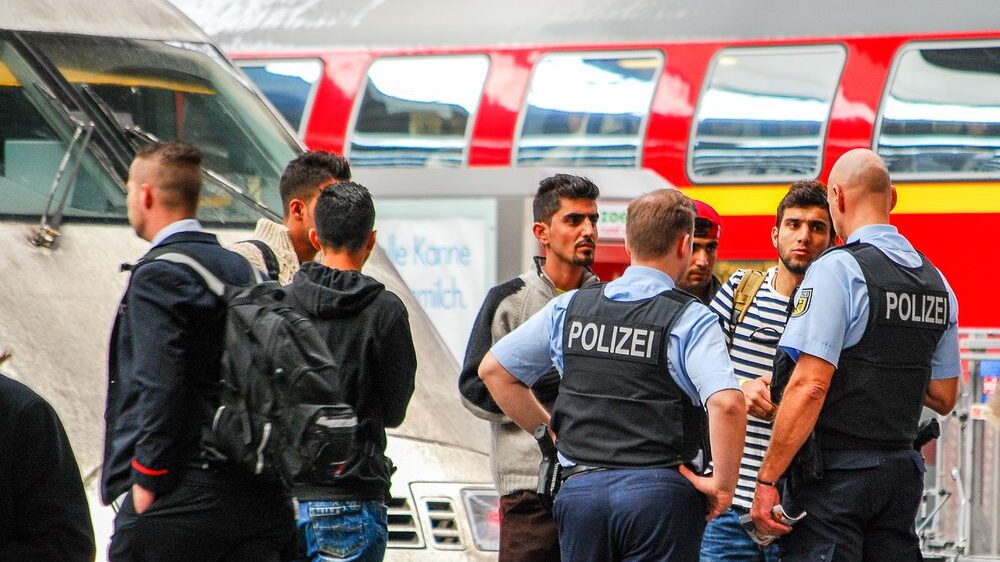
Police talk to several migrants arriving by train at Munich central station.
Photo: Jesus Fernandez / Shutterstock.com
Official figures have revealed that the Residence Act, a law that grants migrants living in Germany the right to reunite with family members from abroad, is facilitating a process known as ‘chain migration,’ allowing tens of thousands of migrants to settle in the country in the past year alone.
The figures, released by the federal government following an information request from the Alternative für Deutschland (AfD) parliamentary group, showed that the left-liberal ‘traffic light’ coalition issued more than 117,000 visas for family reunification of migrants, while a total of 179,420 non-EU citizens received residence permits for family reasons in 2022, the Berlin-based newspaper Junge Freiheit reports.
Of the 117,000 German visas that were granted to foreigners last year under the family reunification scheme, approximately 54,600 of them were issued for “spouses to join a foreigner,” about 16,500 for “spouses to join a German,” and around 40,400 for “children to join.” The most common nationalities to receive visas were Indian, Syrian, Turkish, Russian, and Kosovar.
Additionally, of the 179,000 non-EU citizens that received a German residence permit last year for the first time for family reasons, 121,912 are relatives of third-country nationals (non-EU citizens) who are residing in Germany, 37,775 are relatives of German citizens, and 19,733 are relatives of EU citizens. Most of the relatives of non-EU citizens who were granted residence permits in 2022 were Turkish (4,411), Russian (2,353), Vietnamese (1,646), Ukrainian (1,592), and Moroccan (1,404).
Regarding foreigners living with ‘tolerated status’—those who are technically obliged to leave Germany but whose removal has been suspended for either legal or practical reasons—family reunification is possible under limited circumstances, and is granted “in single cases or in cases of special hardship,” according to a study on family reunification of third-country nationals in Germany carried out by the Federal Office for Migration and Refugees (BAMF).
AfD MP Gottfried Curio, one of the lawmakers who submitted the information request, believes the current family reunification laws, which allow for mass chain migration to take place, ought to be reformed.
“The number of 180,000 residence permits for family members from third countries in 2022 shows that migration, once it has taken place, always leads to further migration,” Curio said, commenting on the figures.
“Insofar as the requirement of [having one’s] own income and sufficient living space is waived in the case of subsequent immigration to recognized asylum seekers, this has caused more immigrants to move into the social system,” he warned, adding that because of this, the reunification of “beneficiaries of subsidiary protection,” has to be stopped so as to prevent municipalities’ social welfare systems from being “completely overburdened.”
Relaxed family reunification laws in other European states governed presently or previously by leftists, like Spain or Italy, are being taken advantage of by some migrants. As The European Conservative previously reported:
To gain Spanish residency, foreign women are reportedly flying to Spain on tourist visas and abandoning their children, who later claim to be unaccompanied minor refugees in an effort to take advantage of Spain’s family reunification policy.
In Italy in 2018, it was reported that as many as 60% of immigrants collecting an Italian pension had never paid into the system and never worked in Italy at all.
